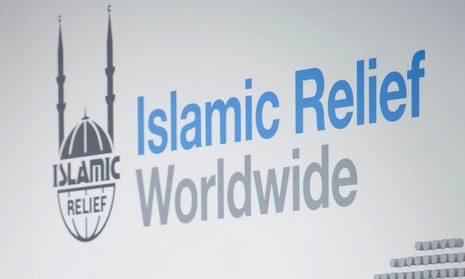The UK’s largest Muslim charity has been exonerated of institutional antisemitism in an independent report after its reputation was badly damaged and government funding suspended over the social media posts of two trustees and a senior member of staff.
Islamic Relief Worldwide (IRW), a global organisation with an annual income of about £130m, was a “highly effective charity” performing “crucial humanitarian work around the world”, said Dominic Grieve, the former Conservative attorney general who led the independent review.
“We found absolutely no evidence that the reputational issues that have arisen over the conduct of a few individuals has had any link to the way IRW carries out this charitable work,” he said.
Grieve said there was no evidence of antisemitism in the organisation. “On the contrary, the charity has made a lot of effort to ensure there isn’t antisemitism, and I saw no evidence of it among staff whatsoever,” he said.
The charity had been “horrified” when it discovered that Tayeb Abdoun, network and resource development director, had been tweeting antisemitic material under an alias, and had acted swiftly to deal with the individual, Grieve said.
Abdoun, who had worked for the charity for more than 25 years, was forced to resign. A few months earlier it was revealed that two trustees had posted antisemitic comments on social media before they were appointed. A new board of trustees was appointed soon afterwards.
As a result of the disclosures, the Foreign, Commonwealth and Development Office suspended its funding of the charity, along with the German and US governments.
IRW, which was the only Muslim charity on the disasters emergency committee, withdrew from the body while the Charity Commission investigated.
Earlier this month, the Charity Commission said it was “satisfied that [IRW] took swift action, including to condemn the comments and ensure all three individuals left their roles”.
It added there had been “significant improvements to the recruitment and oversight of trustees and senior staff at the charity”.
Grieve’s report makes 19 recommendations to improve the charity’s governance, including more non-Muslim and independent trustees, a better gender balance in the organisation, updating its code of conduct and developing a new personal social media policy.
Since August, IRW’s board of trustees has consisted of three women and four men, but its board of directors – the most senior staff – are all men.
IRW said it was committed to fully implementing the report’s recommendations.
Ihab Saad, chair of its board of trustees, said the report had made “a number of valuable recommendations to ensure IRW’s trustees and other senior leaders uphold the highest standards and the values that we expect. We believe the [independent] commission’s advice will help us become an even more effective humanitarian organisation going forward.”
Grieve said he was confident that “IRW will emerge with governance that is suitable for its purposes, puts it at the heart of the charities sector in the UK and enables it to sustain its crucial humanitarian work around the world”.
A spokesperson for the Foreign Office said: “The UK government does not tolerate antisemitism, hate speech or support for terrorist groups and we take the allegations made against senior staff and board members of Islamic Relief Worldwide extremely seriously.
“We are closely assessing the findings from the independent commission and will make decisions in regard to our relationship with this charity in due course.”
